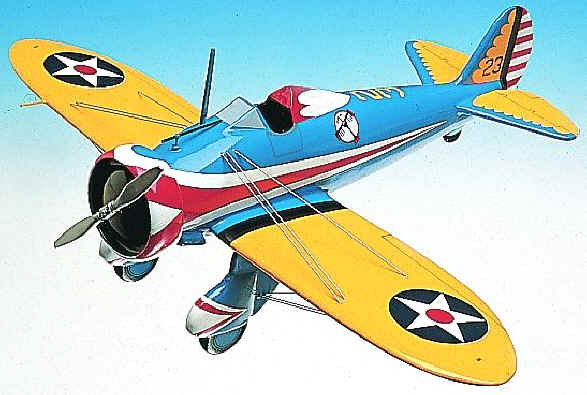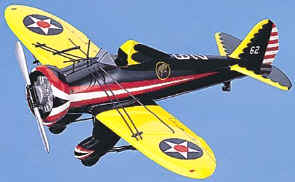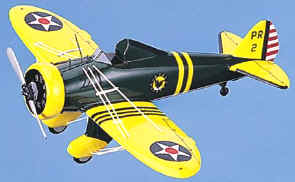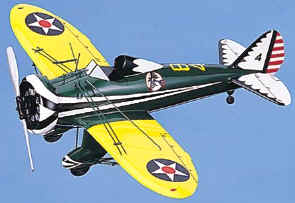|
|
|

|
Boeing
P-26 Peashooter |
 |
The Boeing P-26A was
the first all-metal monoplane fighter (pursuit plane) produced
in quantity for the U.S. Army Air Corps. Affectionately
called the "Peashooter" by its pilots, it was the last
Army Air Corps pursuit aircraft accepted with an open cockpit, a
fixed undercarriage, and an externally braced wing.
Significantly faster in level flight than previous fighters, the
P-26A's relatively high landing speed resulted in the
introduction of landing flaps to reduce this speed.
Boeing initially designed the P-26 in
1931, designating it first as Model 248 and in December 1931 as
the XP-936. The company provided three test airframes, which
remained Boeing property, with the frugal Air Corps providing
the engines, instruments, and other equipment. The first flight
occurred on March 20, 1932. The Army Air Corps purchased the
three prototypes and designated them as P-26s. The Air Corps
purchased a total of 111 of the production version, designating
them as P-26A, and 25 of later -B and -C models.
The P-26 was the Army Air Corps
front-line fighter before it was replaced during 1938-40 by the
Curtiss P-36A and the Seversky P-35. An export version was sold
to China in 1934 where it was used against the Japanese. It was
also used by the Philippine government against the Japanese in
December 1941 when all were destroyed in combat.
|

|
Boeing P-26
Peashooter
Standard Series. 1/24th scale. 14" wingspan x
12" long.
No. ADA3D-DX. Only $119.95 |
 |
 |
 |
Boeing
P-26 "Bucking Mule"
Upper Left. Premier Series. 1/21st scale.
16" wingspan x 13.5" long.
No. ADA3D-CR. Only $219.95
Boeing
P-26 "Rooster
Above. Premier Series. Same size as above.
No. ADA3D-AR. Only $219.95
Boeing
P-26 "Thunderbird"
Left. Premier Series. Same size as above.
No. ADA3D-BR. Only $219.95 |
|
|
